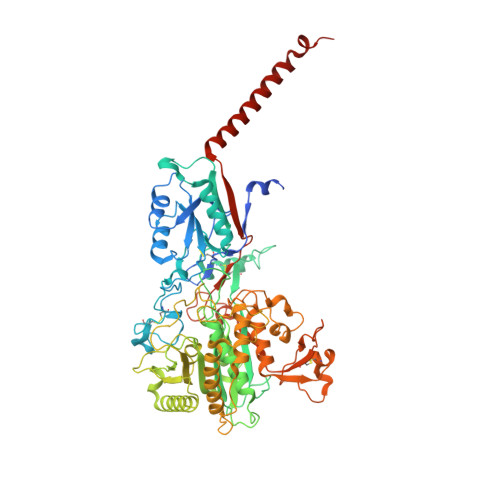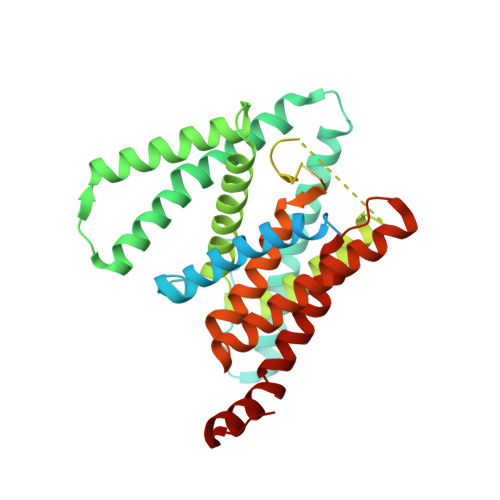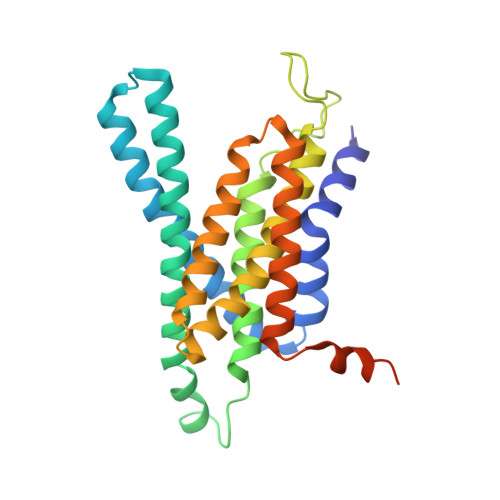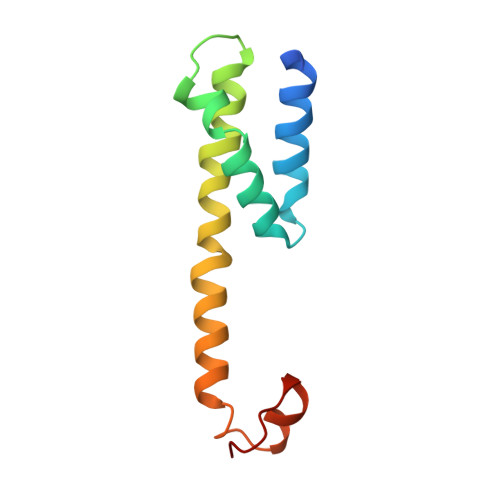Preferential Regulation of Gamma-Secretase-Mediated Cleavage of APP by Ganglioside GM1 Reveals a Potential Therapeutic Target for Alzheimer's Disease.
Wang, X., Zhou, R., Sun, X., Li, J., Wang, J., Yue, W., Wang, L., Liu, H., Shi, Y., Zhang, D.(2023) Adv Sci (Weinh) 10: e2303411-e2303411
- PubMed: 37759382
- DOI: https://doi.org/10.1002/advs.202303411
- Primary Citation of Related Structures:
8IM7 - PubMed Abstract:
A hallmark of Alzheimer's disease (AD) is the senile plaque, which contains β-amyloid peptides (Aβ). Ganglioside GM1 is the most common brain ganglioside. However, the mechanism of GM1 in modulating Aβ processing is rarely known. Aβ levels are detected by using Immunohistochemistry (IHC) and enzyme-linked immune-sorbent assay (ELISA). Cryo-electron microscopy (Cryo-EM) is used to determine the structure of γ-secretase supplemented with GM1. The levels of the cleavage of amyloid precursor protein (APP)/Cadherin/Notch1 are detected using Western blot analysis. Y maze, object translocation, and Barnes maze are performed to evaluate cognitive functions. GM1 leads to conformational change of γ-secretase structure and specifically accelerates γ-secretase cleavage of APP without affecting other substrates including Notch1, potentially through its interaction with the N-terminal fragment of presenilin 1 (PS1). Reduction of GM1 levels decreases amyloid plaque deposition and improves cognitive dysfunction. This study reveals the mechanism of GM1 in Aβ generation and provides the evidence that decreasing GM1 levels represents a potential strategy in AD treatment. These results provide insights into the detailed mechanism of the effect of GM1 on PS1, representing a step toward the characterization of its novel role in the modulation of γ-secretase activity and the pathogenesis of AD.
Organizational Affiliation:
Peking University Sixth Hospital, Peking University Institute of Mental Health, NHC Key Laboratory of Mental Health (Peking University), National Clinical Research Center for Mental Disorders (Peking University Sixth Hospital), Beijing, 100191, China.






















